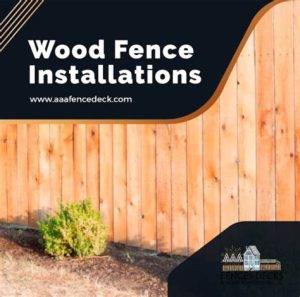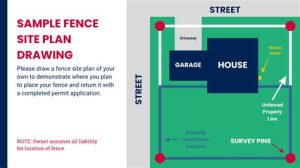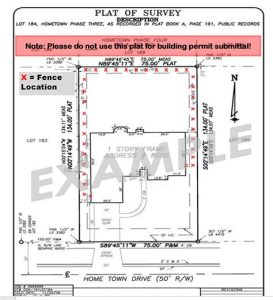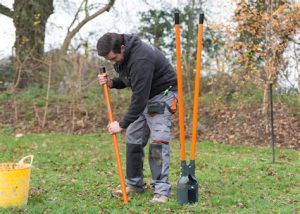Discover the essential role of building inspectors in fence installation, ensuring compliance, structural integrity, and quality assurance for lasting safety and reliability.When it comes to installing a fence, many homeowners may overlook the crucial role of building inspectors in ensuring a successful project. Building inspectors are not just enforcers of regulations; they serve as essential guardians of safety and quality. Their expertise helps navigate the complexities of local laws, ensuring that installations comply with regulatory standards. Furthermore, these professionals assess the structural integrity of the fence, verifying that it can withstand various environmental challenges. From examining proper installation techniques to ensuring overall quality assurance, building inspectors play a pivotal role in safeguarding investments while enhancing property aesthetics. In this blog post, we will delve into the multifaceted responsibilities of building inspectors in fence installations and highlight why their involvement is indispensable for homeowners and contractors alike.
The Importance of Building Inspectors
Building inspectors play a vital role in ensuring the safety and compliance of fence installations. They not only ensure that the fences meet local building codes but also that they contribute to the overall safety and security of a property. This is especially important when it comes to tall or complex fence designs that can impact visibility and accessibility.
One of the key responsibilities of building inspectors is to check for regulatory compliance. This involves verifying that the materials and methods used in fence installation align with local regulations. For example, certain areas may have restrictions on the height of fences, the type of materials allowed, or the proximity to property lines. By enforcing these regulations, building inspectors help maintain the character of neighborhoods and promote public safety.
Moreover, building inspectors can identify potential issues that may arise after a fence installation, such as structural integrity concerns. They assess whether the fence is built to withstand environmental factors like heavy wind or storms. This proactive approach can prevent costly repairs and enhance the longevity of the fence.
Regulatory Compliance in Fence Installation
When it comes to fence installation, regulatory compliance is of utmost importance. Various local, state, and federal regulations dictate how fences should be constructed to ensure safety, aesthetics, and property rights. Compliance with these regulations helps property owners avoid fines and legal disputes, making it essential for both homeowners and contractors to understand the relevant laws.
Before starting any fence installation project, it is crucial to check the zoning laws and specific building codes in your area. This may include regulations on fence height, materials, and positioning relative to property lines. Certain municipalities may even require permits for specific types of fences, particularly those that are high or near public spaces. Failure to comply with these standards can lead to costly alterations or potential legal actions.
Furthermore, working with a qualified building inspector can significantly alleviate concerns regarding regulatory compliance. Inspectors are knowledgeable about local guidelines and can provide valuable insights into the installation process. They ensure that materials used meet safety standards and that construction techniques adhere to regulatory requirements. By prioritizing compliance, you not only enhance the safety and integrity of your fence but also protect your investment in your property.
Ensuring Structural Integrity of the Fence
When it comes to fence installations, ensuring structural integrity is paramount. A well-constructed fence not only provides security and privacy but also enhances the aesthetic value of a property. To achieve this, utilizing building inspectors is critical to ensure that the installation meets all required safety standards.
One of the key aspects that building inspectors evaluate is the material quality used in the fence. Durable materials such as pressure-treated wood, vinyl, and metal can withstand various environmental factors. Moreover, the inspectors check whether the installation techniques align with the manufacturer’s recommendations, which is essential for maintaining structural integrity over time.
Additionally, various factors such as soil conditions and weather elements play a vital role in the longevity of a fence. Building inspectors assess these elements to determine the most suitable type of foundation for the fence’s posts. Properly setting posts in concrete, for instance, can significantly increase the fence’s stability and performance.
Inspecting for Proper Installation Techniques
Proper installation techniques are critical to ensuring that a fence stands the test of time, both structurally and aesthetically. Building inspectors play a vital role in evaluating the quality of fence installation. Their expertise helps homeowners and contractors alike to avoid common pitfalls that can lead to costly repairs in the future.
When inspecting a fence installation, various factors come into play. Among these factors are the alignment and spacing of fence posts, the depth of post holes, and the quality of materials used.
| Inspection Criteria | Description |
|---|---|
| Post Alignment | Ensures that posts are straight and level. |
| Depth of Post Holes | Verifies that holes are deep enough to provide stability. |
| Material Quality | Checks for durable materials that will withstand weather conditions. |
Additionally, inspectors must also evaluate installation techniques such as how the fence panels are secured and whether they comply with local building codes. Adhering to these techniques not only enhances the fence’s durability but also contributes to the overall safety of the property. Inadequate installation can lead to future issues such as leaning or falling fences, which pose risks to both people and property.
By prioritizing proper installation techniques and ensuring that detailed inspections are carried out, building inspectors help maintain a safe and secure environment for everyone.
Quality Assurance Through Inspection
When it comes to fence installations, ensuring quality assurance through rigorous inspection processes is paramount. Quality assurance is defined as the systematic approach to ensuring that products and services are consistently meeting established standards and procedures. In the case of fencing, this means that every fence installed meets both regulatory standards and the expectations of the homeowner.
Building inspectors play a crucial role in the quality assurance process. They conduct thorough inspections at various stages of the fencing installation, from site preparation to the final installation. This step is essential in identifying potential issues that could lead to future problems, such as structural instability or non-compliance with local zoning laws. Regular inspections help ensure that the fencing materials used are of high quality and properly installed.
Incorporating a quality assurance program that includes routine inspections not only safeguards the investment made in a new fence but also enhances the longevity and durability of the structure. By identifying and addressing any issues during the installation process, building inspectors help prevent costly repairs down the line.
Frequently Asked Questions
What is the main role of building inspectors in fence installations?
Building inspectors ensure that fence installations comply with local building codes, safety regulations, and zoning laws.
Why is it important to have a building inspector oversee fence installations?
Having a building inspector oversee fence installations helps to maintain safety standards, prevent potential disputes with neighbors, and ensure the fence is structurally sound.
What are some common regulations that building inspectors check for during fence installations?
Common regulations include height restrictions, property line boundaries, materials used, and setback requirements from property lines.
How can homeowners prepare for an inspection before installing a fence?
Homeowners can prepare by researching local building codes, gathering required permits, and marking property lines to facilitate the inspector’s assessment.
What might happen if a fence is installed without proper inspection?
Installing a fence without proper inspection can lead to fines, mandatory removal of the fence, or legal disputes with neighbors.
Can building inspectors provide guidance on the best practices for fence installation?
Yes, building inspectors can offer advice on materials, design, and installation practices to help homeowners achieve compliant and durable fence installations.
What are some signs that a building inspector is needed during the fence installation process?
Signs that a building inspector is needed include complex zoning laws, previous disputes with neighbors about boundaries, or local regulations mandating inspections for any new structure.





